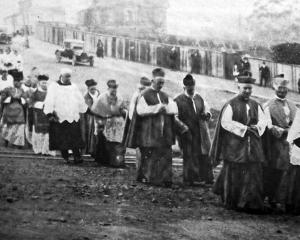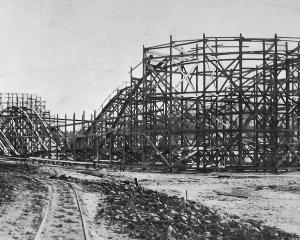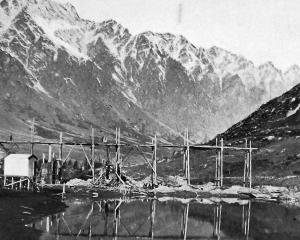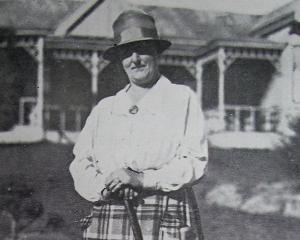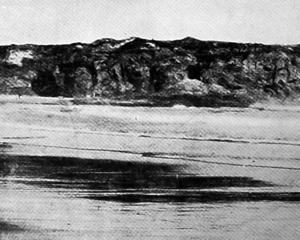
The drizzling rain which fell steadily yesterday afternoon undoubtedly had the effect of keeping many women electors at home, while the fact that numbers of people were busily engaged in cleaning up their homes also kept many people away from the polling booths.
The mayoral election resulted as follows: Harold Livingstone Tapley 4373, Charles Henry Hayward 3266, David Larnach 3128.
Mr Tapley, who was received with cheers, said that this was the proudest moment of his life.
He had to thank the citizens of Dunedin for having elected him to the highest position that it lay in their power.

During his mayoralty it would be his endeavour to do the best for the benefit of the city and to make the people happy and comfortable.
He desired to thank the other candidates for the attitude they had taken up during the contest. It had been a fair fight.
Call to concrete the Leith
The Otago Harbour Board on Tuesday night decided to write to the City Council and request it to take steps to have the Leith lined with concrete in the locality where the weirs are constructed.
It should be explained that in 1916 the then engineer of the Harbour Board (Mr Blair Mason) completely lined the bed of the lower part of the Leith up to Forth street with concrete and walled the banks. From Forth to Union street the work of walling the Leith was carried out by the City Council’s engineer (Mr McCardie).
The bottom was not lined with cement, and a number of weirs or cross-walls were placed in the river.
A great deal of controversy took place at the time on the respective methods of the two systems of engineering.
Mr Moller informed a Daily Times reporter yesterday that there was no doubt in his mind, in the light of experience, which was the better system. He strongly favoured Mr Mason’s plan.
He had visited the Leith twice on Sunday, and it was most noticeable that where the bottom was concreted the water run on quite smoothly. At the weir part, however, the water was in a turbulent state, and was leaping up and falling outside the wall on to the banks.
Mr Moller said that he had been chairman of the Drainage Board in 1916, and that, the board’s engineer (Mr Slinger) and Mr Mason both condemned the construction of the weirs. The effect of the weirs was to slow the flow.
Mr Mason’s idea was that the velocity of the stream should be such as to force back the tidal waters at the outlet of the Leith.
Mr Moller said that he considered it was most necessary that the city corporation should take stops to concrete the bottom of the river over both sections.
Care taken to delay trains
There was some interference with the regular running of trains yesterday. The express from Christchurch was half an hour late in reaching Dunedin, and did not get away till 20 minutes to 1 o’clock, practically half an hour late. The reason for the delay was that travelling had to be made with care. There were no obstructions but the care that had to be exercised caused a reduction of speed. The train was late in leaving Dunedin owing to word being received that there was a threatened slip at Mihiwaka, and that the earth had already begun to move. A working engine was despatched, and when it had been ascertained beyond doubt that the line was safe the south train from Invercargill proceeded on its way north, but was late in leaving. The Outram, Lawrence and Catlins River branch trains are still held back owing to washouts and slips, on which men are actively engaged. — ODT, 27.4.1923
Compiled by Peter Dowden


